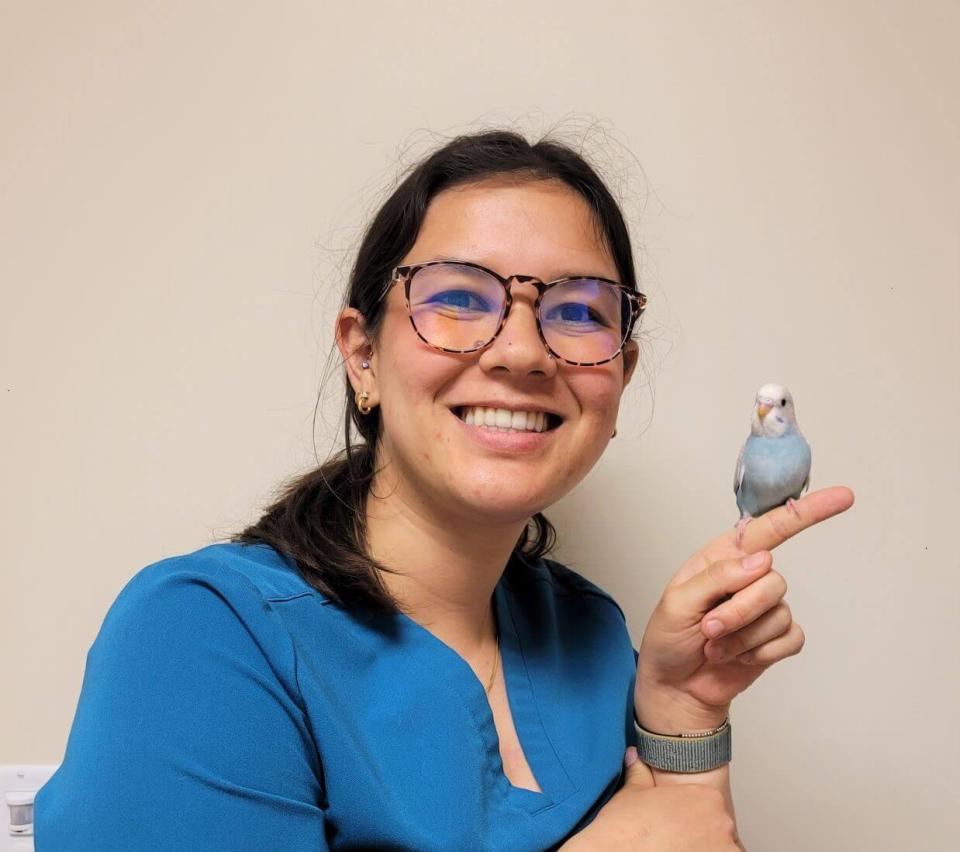
Wing, Beak and Nail Trims
We offer wing clips and nail and beak trims to any avian patient that is up to date on their annual exam. Services include wing clippings, nail trims, and beak smoothing and/or trimming. We do this in the least stressful way, implementing two staff members, one to properly restrain the bird while the other is grooming, versus the typical avian and exotic pet store where the bird is restrained within a towel while the groomer performs their services.
Appropriate wing clips consist of clipping the first 8-10 primary flight feathers either right below the primary covert feathers in which the bird will not be able to fly completely or in a rounded fashion allowing the bird to glide some distance before falling (depending on the species). Please note that clipping wings does not guarantee that your companion bird will not be able to escape. Always have your companion bird in an appropriate carrying case when going outdoors and never leave them alone for any amount of time. If you absolutely have to leave your bird outside, ensure that they are safe from predators, ideally in a double-lined cage or aviary.
Nails are trimmed using a Dremel tool leaving nails dull. Please note that trimming sharp nails may decrease a companion bird’s balance causing them to fall more easily. Be cautious when handling your companion bird who has just had their nails trimmed.
Beaks are smoothed and/or trimmed also using a Dremel tool. Birds naturally grind their beaks through chewing and shedding, and smooth their beaks by rubbing on branches/perches, but your companion bird may not do this for various reasons. We trim beaks only if overgrown where they are trimmed/smoothed to the proper conformation based on species. We typically do not trim the tip or points off of beaks that would otherwise be there naturally. Beaks that are inappropriately dulled to prevent biting may cause the bird to bite down harder than if the tip was left alone. Beaks that are maloccluded (those that grow unevenly) should be trimmed regularly up to every month depending on severity. Maloccluded beaks may cause a decrease in the ability to eat properly so it is very important to schedule trims on a regular basis. Please note that a beak growing more rapidly than normal may be caused by severe malnutrition and/or liver disease.
